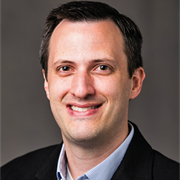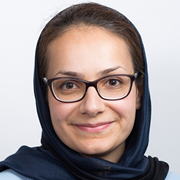Mechanical Engineering
Spring: Sep 15
Summer: n/a
Part-time (Daytime)
Overview
In the Department of Mechanical Engineering, you'll work extensively with the tools you need to succeed across many different engineering industries, such as automotive, aerospace, shipping, power, heating and cooling, and machinery‚ as well as the new and emerging fields of robotics, micro-devices and nano-devices, and medical equipment.
Program Highlights
The master's program in mechanical engineering provides students with opportunities to strengthen their technical backgrounds for pursuing successful professional careers in engineering research, development and management.
Our program is distinguished by its opportunities to work closely with faculty. Graduate students have the chance to collaborate with and learn from some of the most renowned experts in the country, all while seamlessly transitioning from graduate studies to a full-time career.
Applicants do not declare a thesis or non-thesis option upon submitting their application. After matriculation, a thesis option may be selected with the support of a faculty advisor.
Common research areas include:
- Thermo-fluid systems
- Material mechanics and processing
- Robotic, autonomous, and aerospace systems
- Product design and human factors engineering
- Engineering education
Graduate Cooperative Education (Co-Op) Program
The School of Engineering's Graduate Cooperative Education (Co-Op) Program provides students with the opportunity to apply the theoretical principles they have learned in their coursework to real-world engineering projects. Gain up to six months of full-time work experience, build your resume, and develop a competitive advantage for post-graduation employment. Learn more about the Co-Op Program.
Program Outcomes
Mechanical engineers participate in every phase of the research and development process. Regardless of what industry you're in, you'll invent, analyze, and manufacture mechanical components and systems to help solve a particular problem or create a new product.
With an MS from Tufts School of Engineering, you'll graduate with a high level of comfort working in computational design and simulation tools‚ allowing you to apply the principles of your mechanical engineering degree to virtually any field. That's the beauty of mechanical engineering. Countless industries need designers and thinkers with a systems background in solving complex engineering problems‚ and that's exactly what you'll offer.
Careers for graduates include:
- Manufacturing engineer
- Systems engineer
- Aerospace engineer
- Robotics engineer
- Automotive engineer
- Waste management engineer
- Marine and ocean engineer
- HVAC engineer
- Nuclear engineer
- Bioengineer
- Agricultural engineer
Application Requirements
A key admission requirement is strong academic background in mechanical engineering or a related technical discipline.
- Application Fee
- Resume/CV
- Personal Statement
- Transcripts
- Three letters of recommendation
- Official TOEFL, IELTS, or Duolingo test scores (if applicable)
- Mechanical Engineering requires a minimum TOEFL score of 100, IELTS score of 7.5, or Duolingo score of 120 for admittance
- GRE General Test scores are not required
- Portfolio (optional)
Tuition & Financial Aid
At Tufts University, we believe every qualified applicant deserves the opportunity to pursue graduate study. We are dedicated to helping you understand your financial options and to ensuring that graduate education at Tufts is both accessible and within reach.
Tuition costs for this graduate program are billed at a per credit rate:
| Estimated Tuition for MS Program | |
|---|---|
| Tuition* | $1,799 per credit |
| Total Credits Required | 30 |
| Enrollment Status | Full-Time: 3-4 courses per semester (9-12 credits) Part-Time: 1-2 courses per semester (3-6 credits) |
| Estimated Tuition per Semester | Full-Time: $16,191 - $21,588 per semester (9-12 credits) Part-Time: $5,397 - $10,794 per semester (3-6 credits) |
| Estimated Total Tuition* | $53,970 |
*Estimated based on 2025-2026 tuition rates. Rates are subject to change each academic year. For further information about the full cost of attendance, including additional fees and estimated indirect costs (housing, transportation, etc.), please visit Student Financial Services.
The Tufts University School of Engineering offers partial, merit-based tuition scholarships for the majority of our graduate and certificate programs. All applicants are automatically considered for these awards as part of our holistic admissions review process—no separate scholarship application or additional materials are required.
Additional funding opportunities may include Tufts Double Jumbo Scholarships for Tufts graduates, Bridge Program Scholarships for students and alumni from select partner institutions, and veteran and military education benefits for eligible service members and their dependents, including participation in the Yellow Ribbon Program.
To further support your investment in a Tufts graduate education, a range of financing options are available, including federal and private student loans. For more details, please visit our Graduate Financial Aid page.
Career Outcomes

Average Salary: $99K+
Projected Job Growth (2022-2032): 10%
*Sources: Average salary and projected job growth statistics are from the U.S. Bureau of Labor Statistics Occupational Outlook Handbook.
Faculty

Jason Rife

Jason Rife
Research/Areas of Interest: navigation, safety-critical transportation systems, state estimation, human-robot interaction

Nadine Aubry

Nadine Aubry
Research/Areas of Interest: Fluid dynamics, turbulence, reduced modeling of complex systems, dynamical systems theory, chaotic mixing, microfluidics, electrohydrodynamics, manipulation and assembly of nanoscale particles in microfluidics, biofluids

Luisa Chiesa

Luisa Chiesa
Research/Areas of Interest: sustainable energy, superconducting materials, materials science

Ryan Cosner

Ryan Cosner
Research/Areas of Interest: Ryan's research lies at the intersection of control theory, machine learning, and robotics, with the goal of enabling provably safe and dynamic robot autonomy in uncertain real-world settings. His work bridges theory and practice through the development of risk-aware control frameworks, efficient deployable algorithms, and validation on a wide range of robot platforms. His ultimate goal is to create safety methods that inspire trust and provide us with the confidence needed to deploy high-performance autonomous robots at scale. **Recruiting new PhD students for admission in Fall 2026.**

Jeffrey Guasto

Jeffrey Guasto
Research/Areas of Interest: biophysics and soft matter, microscale fluid mechanics and transport phenomena, microfluidic devices

Daniel Hannon

Daniel Hannon
Research/Areas of Interest: human factors, airspace systems

Trevion Henderson

Trevion Henderson
Research/Areas of Interest: Engineering education; Diversity, equity, and inclusion; team-based engineering pedagogies; engineering design thinking

Marc Hodes

Marc Hodes
Research/Areas of Interest: heat transfer, apparent slip, thermal management of electronics, mass transfer in supercritical fluids and thermoelectricity, material science

Felix Huang

Felix Huang
Research/Areas of Interest: human factors, human motor learning, human motor control, neuro-rehabilitation, robotics, virtual reality, surgery skill training

James Intriligator

James Intriligator
Research/Areas of Interest: Human Factors Engineering, Innovation, Design Thinking, AI-powered Innovation and R&D, Human Machine System Design, Robotics, Machine Learning, Perception, Psychology

Mark Kachanov

Mark Kachanov
Research/Areas of Interest: Mechanics of materials; effective properties of heterogeneous materials; microstructure-property relationships; applications to material science

Erica Kemmerling

Erica Kemmerling
Research/Areas of Interest: Fluid mechanics, flow in the human body, hemodynamics, aneurysms, heart development, flow in tumors, cardiac assist devices

Hungtang Ko

Hungtang Ko
Research/Areas of Interest: Hungtang Ko's research focuses on the collective organization of biological collectives and robot swarms in fluid environments. He conducts animal experiments, simulates agent-based models, and designs biomimetic robots to investigate the physical interaction among insect swarms and fish schools. Beyond his core research, his diverse research interests extend to traffic flow, animal biomechanics, and the physics of wok tossing. **Recruiting new PhD students for admission in Fall 2026**

Hoda Koushyar

Hoda Koushyar
Research/Areas of Interest: biomechanics, applied mechanics, materials characterization, engineering education

Gary Leisk

Gary Leisk
Research/Areas of Interest: machine design, nondestructive testing

Douglas Matson

Douglas Matson
Research/Areas of Interest: solidification processes, thermal manufacturing, machine design, materials science

Markus Nemitz

Markus Nemitz
Research/Areas of Interest: Pushing towards his vision of rapidly designing robots and materializing them at points of impact, Prof. Nemitz's research interests encompass 3D-printable robots, real-time adaptive additive manufacturing, and automated discovery processes for robotic materials.

Chris Rogers

Chris Rogers
Research/Areas of Interest: Engineering Education, Human Robot Interaction, Mechanical Engineering, Music Engineering, Artificial Intelligence and Image Processing

Anil Saigal

Anil Saigal
Research/Areas of Interest: materials engineering, materials science, manufacturing processes, quality control

Igor Sokolov

Igor Sokolov
Research/Areas of Interest: Present: Engineering for Health -> Physics of cancer and aging -> Mechanics of biomaterials at the nanoscale, Synthesis and study of functional nanomaterials for biomedical imaging and drug delivery, Advanced imaging for medical diagnostics, Novel processes and materials for dentistry: nano-polishing and self-healing materials. Favorite experimental techniques: atomic force microscopy/scanning probe microscopy, confocal microscopy and spectroscopy, nanoindenters. Favorite theoretical methods: contact models, machine learning methods. Past: quantum field theory, theory of gravity, cosmology, Casimir effect.

Kristen Wendell

Kristen Wendell
Research/Areas of Interest: learning sciences, engineering education, design practices, classroom discourse, engineering knowledge construction

Robert White

Robert White
Research/Areas of Interest: Microelectromechanical Systems (MEMS) fabrication, modeling, and testing. Particularly acoustic MEMS (microphones, ultrasound), and aerodynamic measurement technologies (skin friction sensors, aeroacoustic sensors). High altitude atmospheric sensing and acoustics for planetary science. Acoustics, vibrations, dynamics and controls. Electromechanical systems including robotics. Finite element methods and system modeling. Electronics for measurement. Mechanical measurements.

Michael Wiklund

Michael Wiklund
Research/Areas of Interest: human factors

Michael Zimmerman

Michael Zimmerman
Research/Areas of Interest: novel polymer electrolytes for batteries, liquid crystal polymers, composite materials, materials science